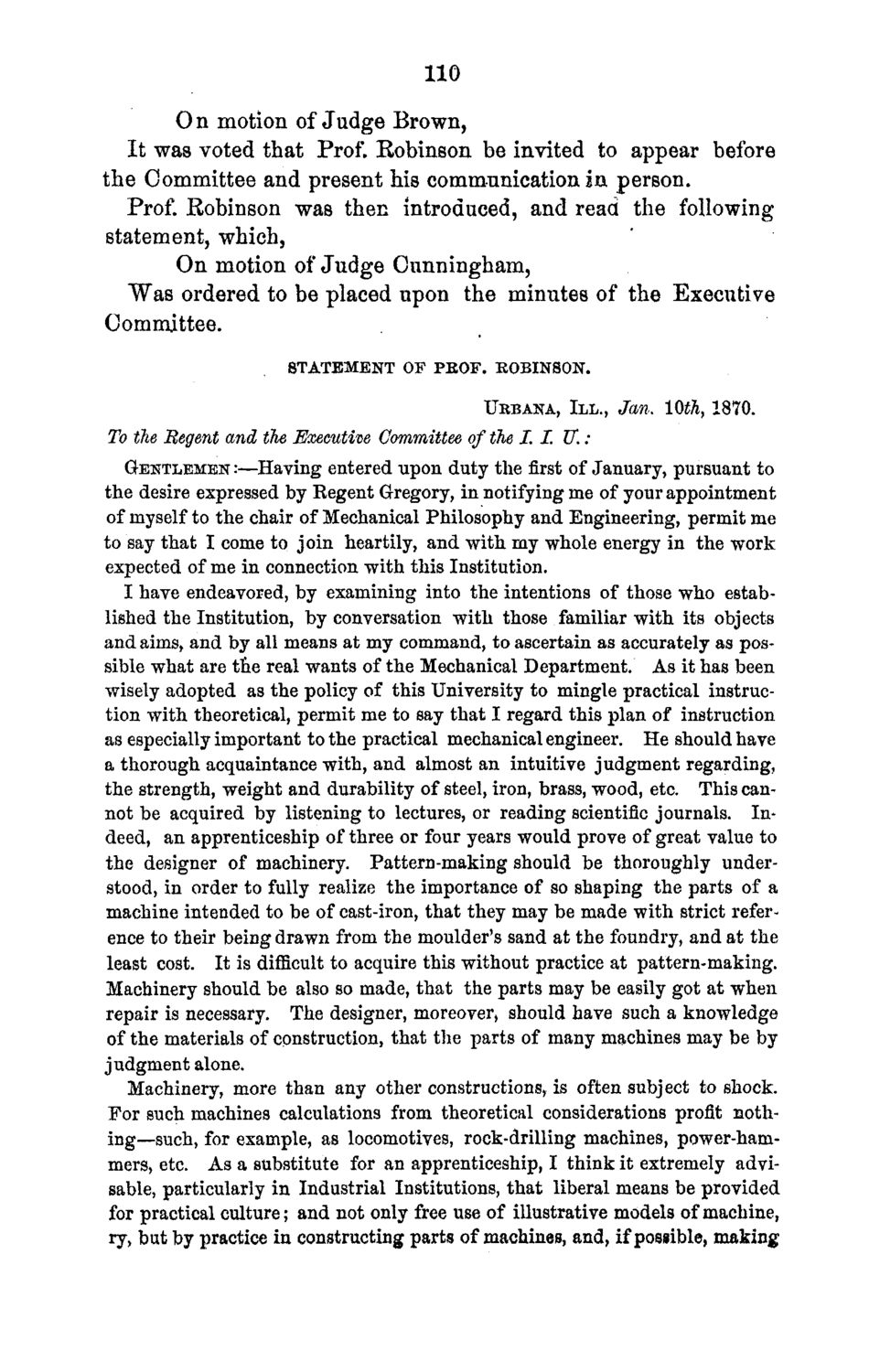| |
| |
Caption: Board of Trustees Minutes - 1870
This is a reduced-resolution page image for fast online browsing.

EXTRACTED TEXT FROM PAGE:
no On motion of Judge Brown, It was voted that Prof. Robinson be invited to appear before the Committee and present his communication m person. Prof. Robinson was then introduced, and read the following statement, which, On motion of Judge Cunningham, Was ordered to be placed upon the minutes of the Executive Committee. STATEMENT OF PROF. ROBINSON. URBANA, I I I . , Jan. 10th, 1870. To the Regent and the Executive Committee of the L I. IT.: GENTLEMEN :—Having entered upon duty the first of January, pursuant to the desire expressed by Regent Gregory, in notifying me of your appointment of myself to the chair of Mechanical Philosophy and Engineering, permit me to say that I come to join heartily, and with my whole energy in the work expected of me in connection with this Institution. I have endeavored, by examining into the intentions of those who established the Institution, by conversation with those familiar with its objects and aims, and by all means at my command, to ascertain as accurately as possible what are tne real wants of the Mechanical Department. As it has been wisely adopted as the policy of this University to mingle practical instruction with theoretical, permit me to say that I regard this plan of instruction as especially important to the practical mechanical engineer. He should have a thorough acquaintance with, and almost an intuitive judgment regarding, the strength, weight and durability of steel, iron, brass, wood, etc. This cannot be acquired by listening to lectures, or reading scientific journals. Indeed, an apprenticeship of three or four years would prove of great value to the designer of machinery. Pattern-making should be thoroughly understood, in order to fully realize the importance of so shaping the parts of a machine intended to be of cast-iron, that they may be made with strict reference to their being drawn from the moulder's sand at the foundry, and at the least cost. It is difficult to acquire this without practice at pattern-making. Machinery should be also so made, that the parts may be easily got at when repair is necessary. The designer, moreover, should have such a knowledge of the materials of construction, that the parts of many machines may be by judgment alone* Machinery, more than any other constructions, is often subject to shock. For such machines calculations from theoretical considerations profit nothing—such, for example, as locomotives, rock-drilling machines, power-hammers, etc. As a substitute for an apprenticeship, I think it extremely advisable, particularly in Industrial Institutions, that liberal means be provided for practical culture; and not only free use of illustrative models of machine, ry, but by practice in constructing parts of machines, and, if possible, making
| |